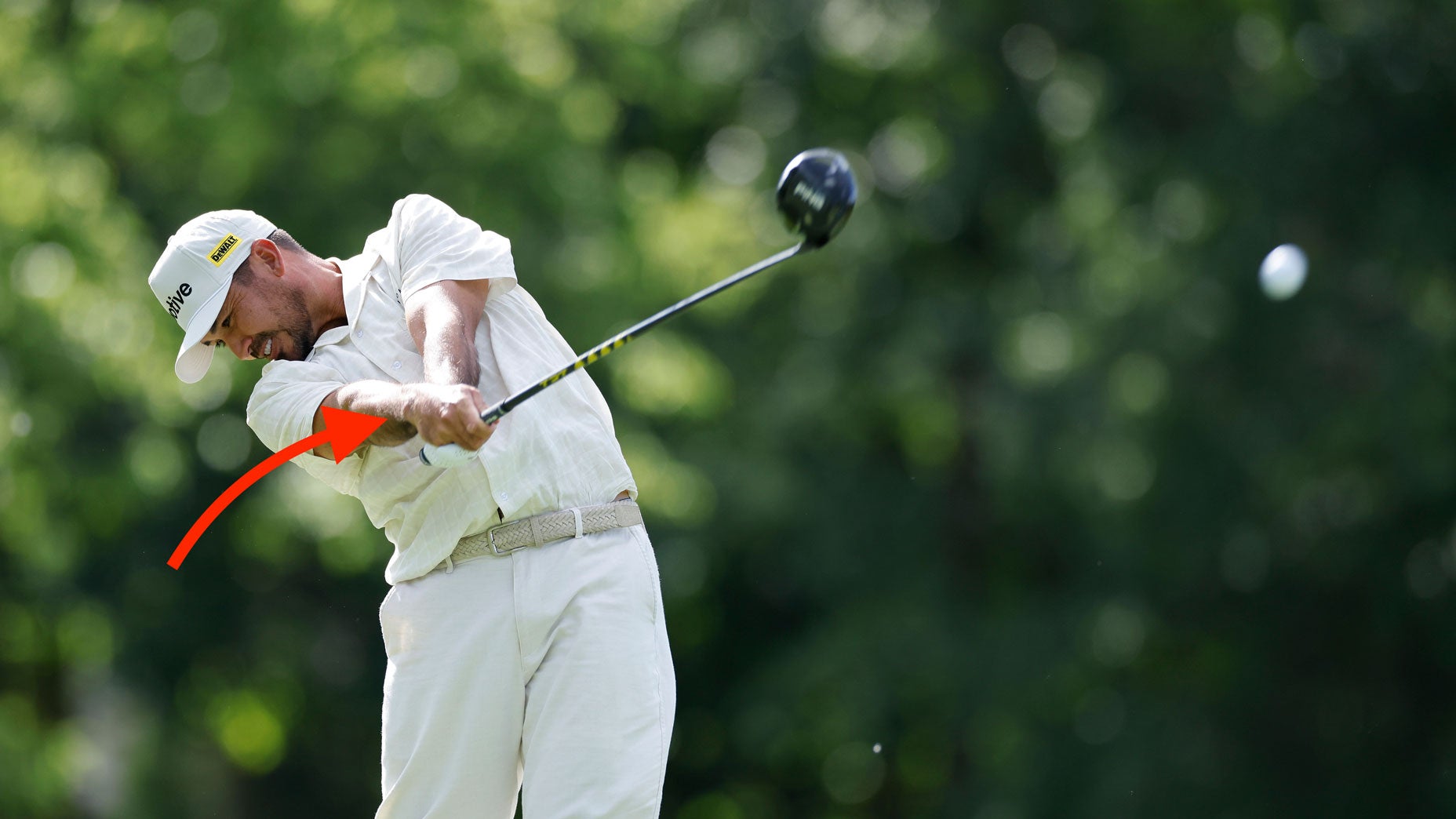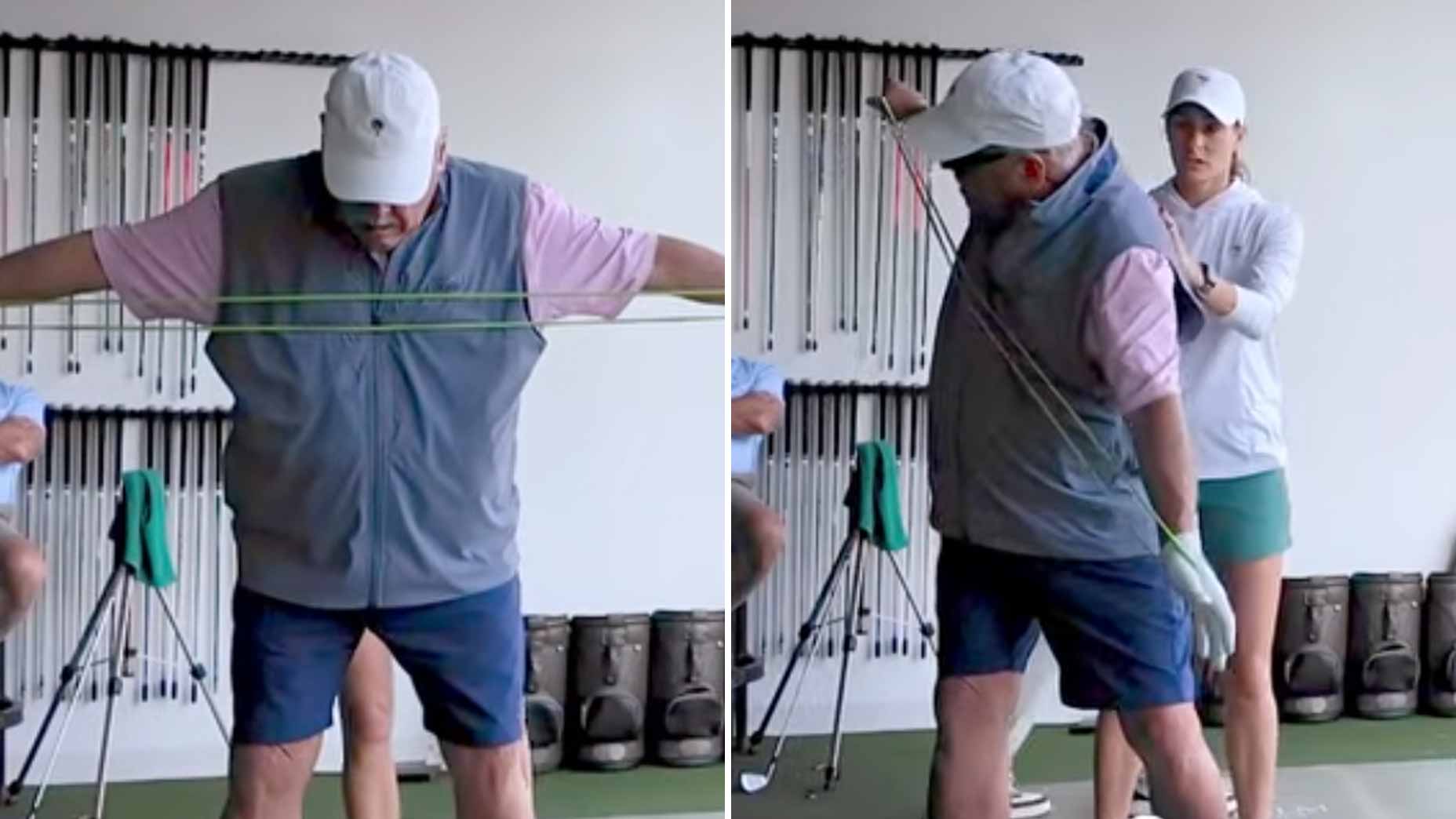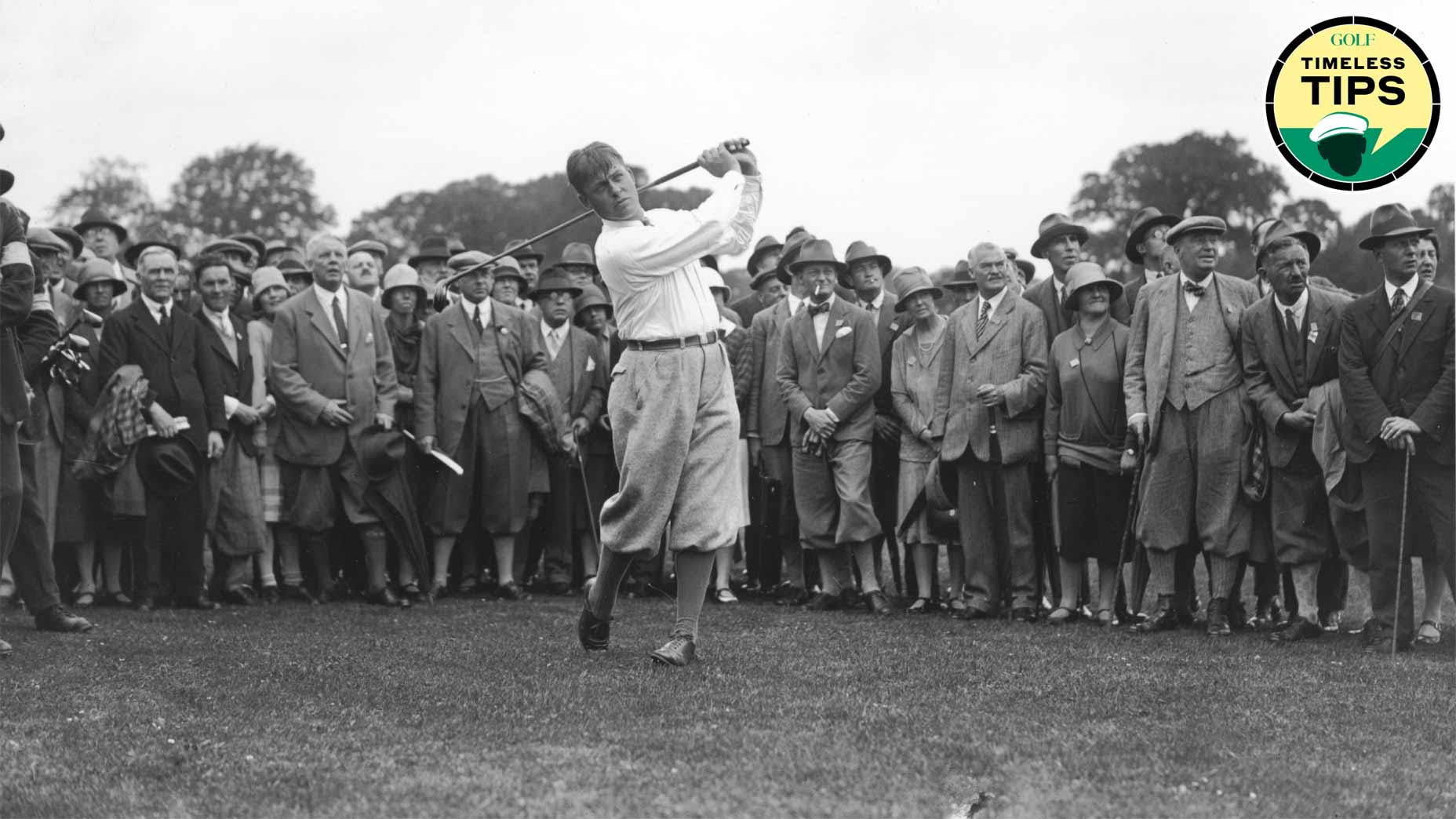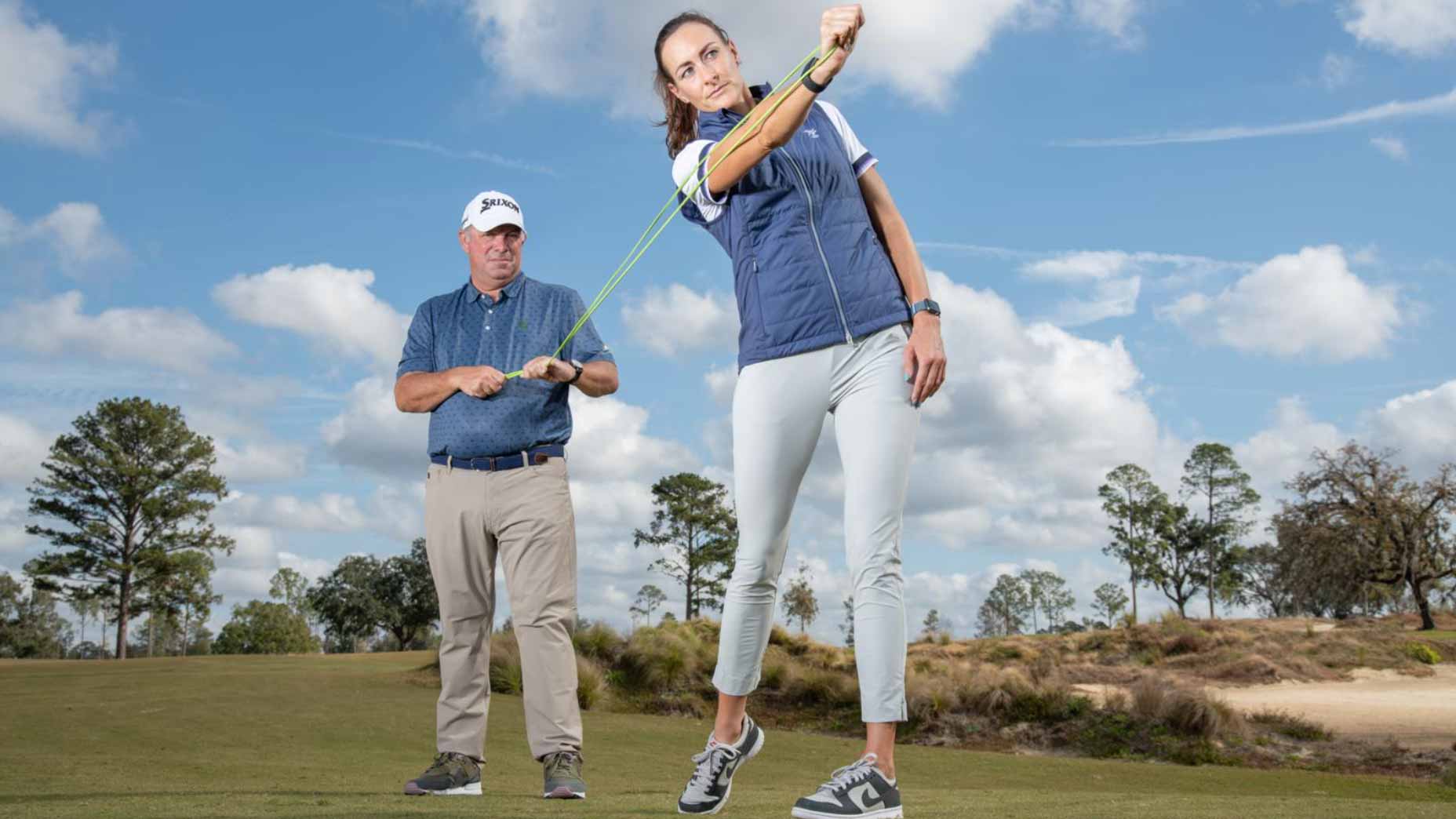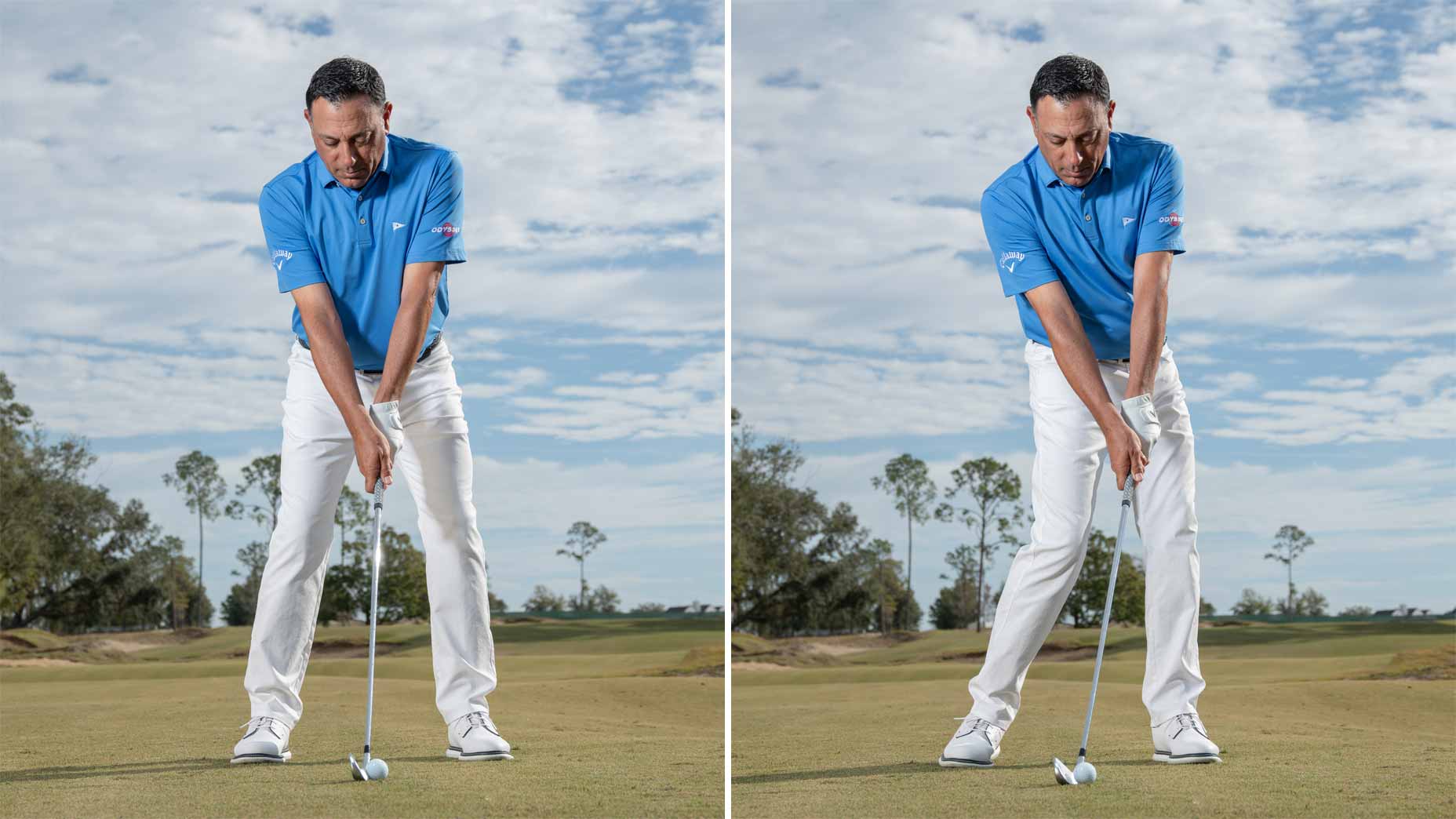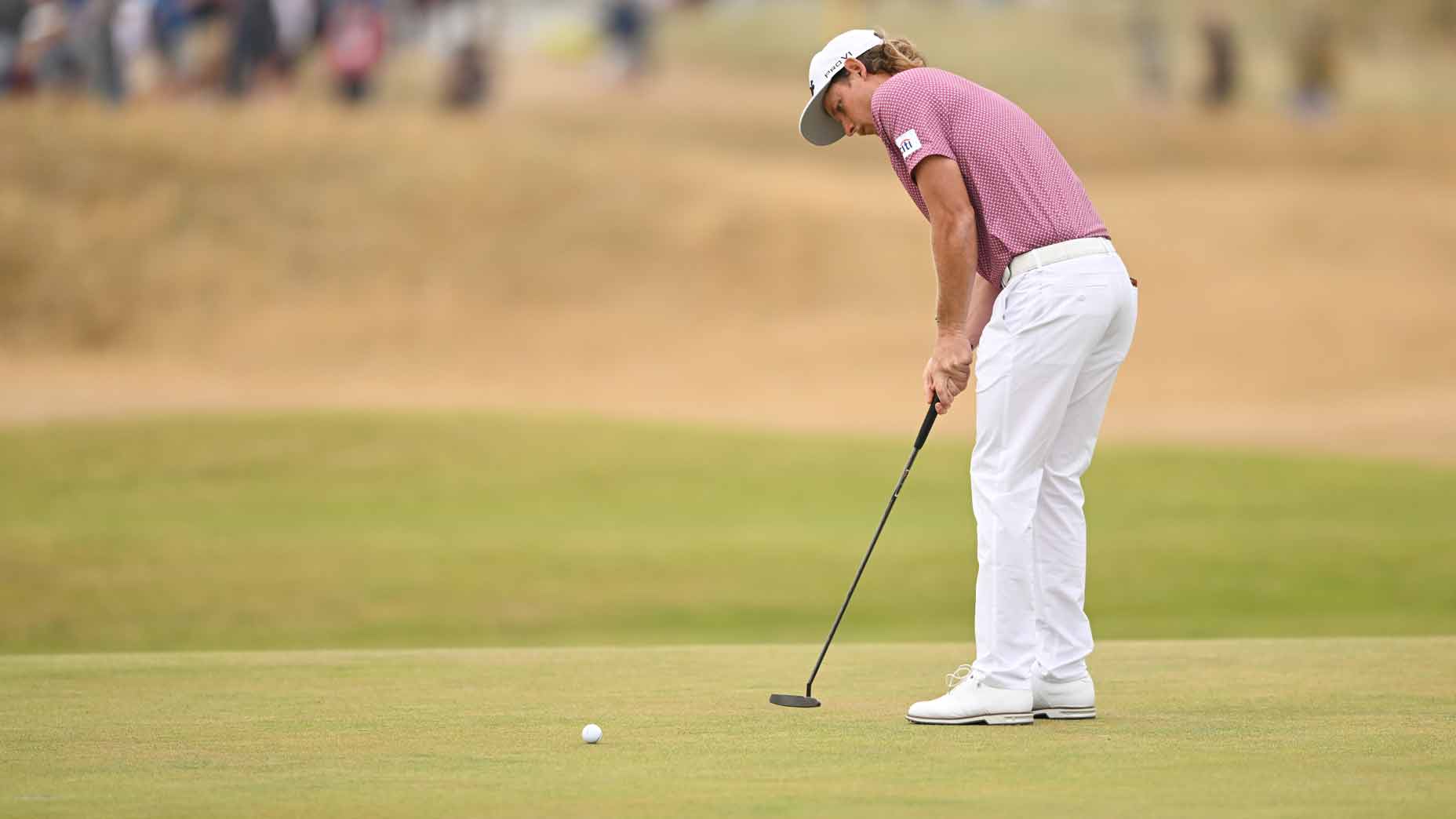When we hear that a tour player is working on a specific aspect of their swing, we naturally wonder why and how we can incorporate it into our own game. After all, the pros know best, right?
That’s why after listening to a recent episode of The Smylie Show where Jason Day shared one of his key swing changes, I selfishly needed to find out more so I could level up my game.
As Day explains in the clip below, he’s been working on his release pattern, more specifically, his hand path.
“Essentially, what I’m trying to do is create the hand path going up,” Day says. “Old school Tiger used to do it. Some of the best ball strikers in the world used to do it.”
Day says that it’s something he’s learned from his swing coach, GOLF Top 100 Teacher Chris Como.
“I want to be able to have the path, or the hand path, go from low to high,” Day says.
He demonstrates that this low-to-high hand path helps him get his hips forward, create a forward press and maintain his spine angle through the strike. This allows him to hit up on the ball and deliver his speed just past impact — something we see from the biggest hitters in the game.
Take a look at this video of three-time World Long Drive Champion Kyle Berkshire’s golf swing. Notice how the fastest point of his swing happens just after impact, and the ball seems to get in the way of his club. It’s similar to the mechanics we see from a baseball player that’s swinging for the fences.
So how can you apply these principles to your own swing to improve your hand path and boost your distance off the tee? According to Addison Craig, a GOLF Top 100 Teacher to Watch, you have to stay connected.
When amateurs hear the phrase hit down on it, they have a tendency to get too steep in their swing and break down their hands and arms through impact. Which results in a loss of power and consistency.
Instead, Craig says to think about your release like throwing a medicine ball down the target line. If you tried to throw the ball with just your arms, it wouldn’t go anywhere. You have to stay connected to recruit bigger muscles that will help you launch the ball.
The same concept applies to your golf swing, and you can practice this feeling with Craig’s connection drill.
Connection drill
To try it out, grab an iron and place the grip end of the club into your belly button. Then, get into your normal setup. Make a few swings, taking the club halfway back and halfway through, keeping your arms straight and the butt of the club attached to your body.
Craig says you should feel your body and hands rise naturally with the club. Finishing with your arms pointing toward the target and the club still attached to your body.
In addition to improving your hand path, this drill will also help you understand where to deliver your speed in your swing. As you turn back and through, maintaining that connection, you should feel your momentum instinctively peak just after impact.
Utilize Craig’s drill, or even a handy training aid, to maintain your body connection and develop a low-to-high hand path that fosters a more powerful, consistent strike.

The Connector by Sure Golf
View Product
